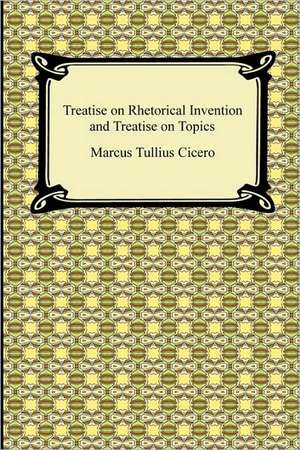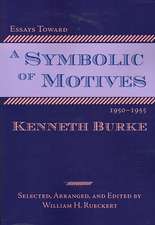Treatise on Rhetorical Invention and Treatise on Topics
Autor Marcus Tullius. Ciceroen Limba Engleză Paperback – 31 dec 2008
Preț: 72.01 lei
Nou
Puncte Express: 108
Preț estimativ în valută:
13.78€ • 14.98$ • 11.59£
13.78€ • 14.98$ • 11.59£
Carte tipărită la comandă
Livrare economică 21 aprilie-05 mai
Preluare comenzi: 021 569.72.76
Specificații
ISBN-13: 9781420934359
ISBN-10: 142093435X
Pagini: 106
Dimensiuni: 152 x 229 x 6 mm
Greutate: 0.17 kg
Editura: Digireads.com
ISBN-10: 142093435X
Pagini: 106
Dimensiuni: 152 x 229 x 6 mm
Greutate: 0.17 kg
Editura: Digireads.com
Notă biografică
Marcus Tullius Cicero (3 January 106 BC - 7 December 43 BC) was a Roman statesman, orator, lawyer and philosopher, who served as consul in the year 63 BC. He came from a wealthy municipal family of the Roman equestrian order, and is considered one of Rome's greatest orators and prose stylists.
His influence on the Latin language was immense: it has been said that subsequent prose was either a reaction against or a return to his style, not only in Latin but in European languages up to the 19th century. Cicero introduced the Romans to the chief schools of Greek philosophy and created a Latin philosophical vocabulary (with neologisms such as evidentia, humanitas, qualitas, quantitas, and essentia), distinguishing himself as a translator and philosopher.
Though he was an accomplished orator and successful lawyer, Cicero believed his political career was his most important achievement. It was during his consulship that the second Catilinarian conspiracy attempted to overthrow the government through an attack on the city by outside forces, and Cicero suppressed the revolt by summarily and controversially executing five conspirators. During the chaotic latter half of the 1st century BC marked by civil wars and the dictatorship of Gaius Julius Caesar, Cicero championed a return to the traditional republican government. Following Julius Caesar's death, Cicero became an enemy of Mark Antony in the ensuing power struggle, attacking him in a series of speeches. He was proscribed as an enemy of the state by the Second Triumvirate and consequently executed by soldiers operating on their behalf in 43 BC after having been intercepted during an attempted flight from the Italian peninsula. His severed hands and head were then, as a final revenge of Mark Antony, displayed on the Rostra.










